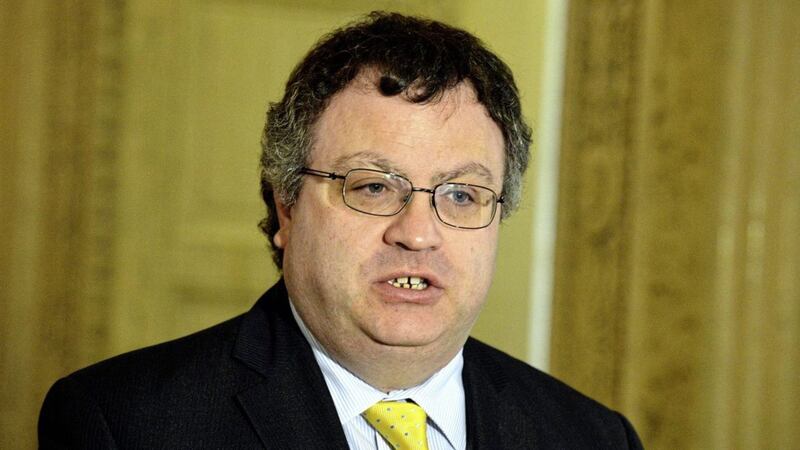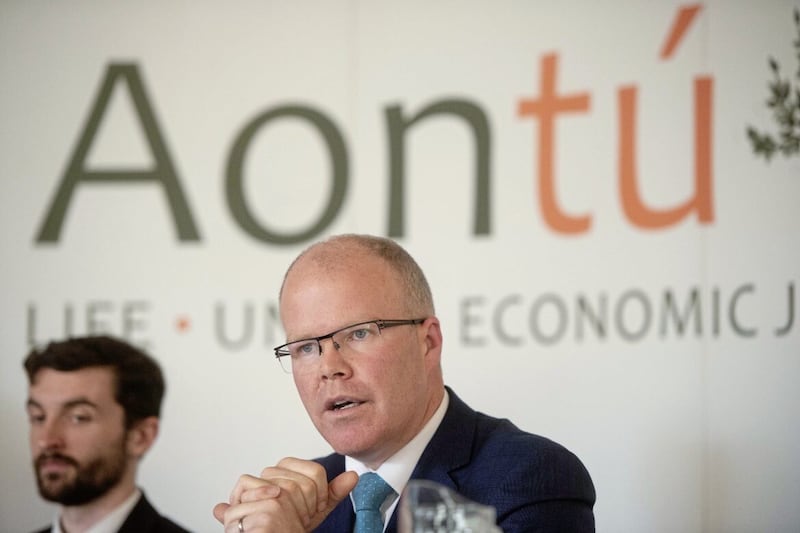THE forthcoming couple of months are set to be crucial for the Brexit negotiations overall, with the Northern Ireland-Ireland border issue pivotal as the major outstanding issue in terms of a withdrawal agreement.
The starting point is the EU-UK joint report from December 2017, but different projections of this initial text persist with the UK government continuing to reject this aspect of EU Commission's draft withdrawal agreement published last month.
Until these differences are addressed there will be ongoing uncertainty and fears regarding borders anywhere in these islands. Borders need to be seen in more than just economic terms but as barriers with emotional and psychological implications.
The `option C' insurance guarantee from the joint report is helpful in some respects, but it still holds out the danger of a border down the Irish Sea, and there is a risk of a border across the island of Ireland if the talks collapse. Fundamentally, the UK government remains trapped in the trilemma of its own making in that it is simultaneously committed to avoiding a border with physical infrastructure in Ireland; leaving the customs union and single market; and not putting in place special arrangements for Northern Ireland regarding both.
In turn, they have offered alternative approaches. Even the most advanced free trade agreement would not amount to a customs union and would lead to a border for at least rules of origin checks, while mooted technological solutions are untried and untested, and even the NI Affairs Committee, including several high profile Brexiteers, has dismissed this approach as unviable within the necessary timescale. More recent suggestions of a far reaching customs partnership and tracking mechanism for goods are similarly unrealistic within the required timetable.
This brings matters back to what may become a binary choice between either Northern Ireland as a region or alternatively the UK as a whole aligning with the rules of the customs union and the single market as necessary to avoid a physical border with the European Union within the island of Ireland. However, there is a danger that this becomes too narrow a solution.
The underlying approach is only defensive: avoiding a hard border, protecting the Good Friday Agreement and preserving existing north-south cooperation. The mooted approach, including from the EU, relates primarily to the movement of goods. It is in effect a cherry-picking of the single market.
Arising from this there are two broad sets of challenges that need to be considered.
First, it may not be viable to decouple the movement of goods from services and people. For instance, can a EU national drive a load of goods originating in the EU into Northern Ireland. There are also many organisations, including professional services, that operate on a north-south basis and would not be captured by the current range of proposals. Many companies have existing dependency on EU nationals, who are not covered by the protection given to the common travel area, and it is not enough to simply protect existing staff as ongoing recruitment is a fact of life.
Second, it is not good enough to defend what we have, we must be aspirational in building an economy for the future. Too much of the current debate relates to comparing the volumes of trade east and west relative to north and south. But it is wrong to simply freeze and protect the existing pattern of economic inactivity. We are not exactly starting from a strong base.
Despite the progress, including inward investment, of recent years, Northern Ireland remains structurally inferior to virtually every other region in these islands, with lower growth and a widening productivity gap.This is not helped by the absence of an Executive and a coherent economic strategy
Without full participation in the single market, there is a danger of a slow strangulation of the Northern Ireland economy as the means to grow will be constrained. If government agencies are always having to explain overly complicated special arrangements for Northern Ireland or uncertainty regarding ongoing regulatory alignment, then investors will be deterred.
Most future economic growth is likely to be in services, but if Northern Ireland cannot properly participate in the single market in this respect our most obvious path to economic transformation will be constrained. It was not too long ago that all five main parties wanted a lower rate of corporation tax on the basis of shifting the nature of inward investment from essentially back office service centres to profit-centres based around the sale of services – yet this depends on clear unfettered participation in the wider European single market as the local market is too small.
In all of this context, it would be better if the entire UK was to remain in a customs union with the EU and, if not the entire UK itself, then at least, Northern Ireland stays fully within the single market.
:: Stephen Farry MLA is the deputy leader and Brexit spokesman of the Alliance Party.








